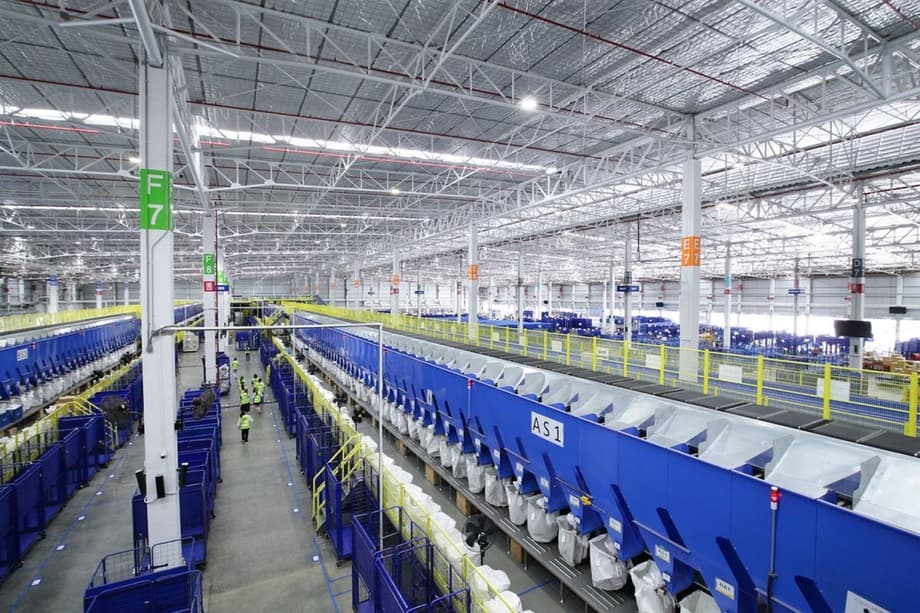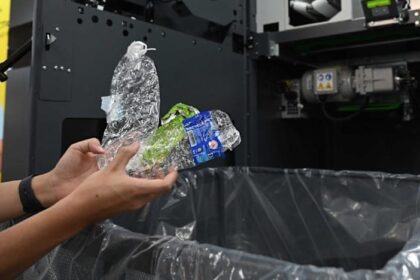Why Thai ecommerce leaders want tougher rules
Ecommerce leaders in Thailand are urging the government to tighten controls on cheap imported goods sold online, pressing for a rule that would block sales of foreign products priced below 100 dollars on digital marketplaces. They also want a national digital customs system that connects directly to major platforms so taxes and duties can be calculated and paid at checkout. The aim is to protect local producers, raise product standards, and make border taxes predictable for shoppers.
- Why Thai ecommerce leaders want tougher rules
- What leaders are proposing
- How the new duty on low value imports would work
- Why Indonesia matters to Thai policymakers
- Stakes for consumers and small sellers
- A market that grew fast and now faces stricter rules
- What businesses selling to Thailand should do now
- The Bottom Line
This push coincides with a plan by the Customs Department to begin imposing import duty on parcels valued at under 1,500 baht from Jan 1. Low value consignments have often entered without duty, aided by fragmented oversight. Industry executives argue that closing this gap will improve tax fairness, support Thai brands and factories, and curb a wave of ultra cheap goods that undercut compliant sellers.
Leading voices include Pawoot Pongvitayapanu, honorary president of the Thai Ecommerce Association, who backs the duty change and calls for transparency at each stage of customs processing, along with stricter safety and quality enforcement. Paul Srivorakul, group chief executive of aCommerce, argues that platforms should serve as official tax collectors through a direct link to customs, a change that would shift administrative burdens away from the state and remove surprise delivery charges for buyers. Thanawat Malabuppha, also an honorary president of the association, urges clarity on the treatment of free zones, stronger connections between platforms and Thai regulators for product standards and medical approvals, and forecasts as much as 10 billion baht in new revenue based on a 1 trillion baht ecommerce market.
Supporters of the tighter rules frame them as a reset for a market that has thrived on speed and price, but now faces rising concerns about quality, undeclared taxes, and a dependence on imports. They expect some short term price increases on small imported items, yet believe the changes will steer spending toward locally made goods, lift compliance, and build confidence among consumers and sellers.
What leaders are proposing
The package being discussed has three pillars. First, align with an Indonesian style rule that blocks online sales of imported goods below a fixed price threshold. Second, switch tax collection to the point of purchase with delivery duty paid (DDP) so buyers see the full landed price before they click buy. Third, set conduct standards for large platforms, including limits on price manipulation, curbs on selling their own branded products, and restrictions on payment systems that can tilt the playing field.
A 100 dollar online floor modeled on Indonesia
In recent years Indonesia overhauled its ecommerce rulebook to help domestic sellers. Authorities set a 100 dollar minimum price for foreign goods sold online, trimmed loopholes in low value import rules, and moved to curb social commerce practices that blurred the line between content and retail. Officials there also raised import tariffs on a range of consumer goods, including apparel, footwear, cosmetics, and electronics. The message to platforms and cross border sellers was clear, lift standards and stop treating low cost imports as tax free or lightly taxed items.
Thai executives who support a similar floor argue that it would reduce the flood of very cheap items, many of which bypass quality checks, lack Thai labeling, or misstate values. A threshold would not halt all imports. It would channel very low priced goods back to traditional retail or require local sourcing, while higher priced items could continue under stricter compliance.
Tax at checkout and a unified digital customs link
A central demand is to connect major marketplaces and social commerce operators to a unified customs gateway so taxes and duties can be assessed in real time and collected at checkout. Under DDP, the seller or platform calculates the total landed cost, including import duty and value added tax, and collects payment upfront. Couriers then deliver without surprise fees. This approach creates transparency for consumers, improves audit trails for regulators, and reduces opportunities for informal payments in the last mile.
Executives say the platforms are best placed to perform this role because they already manage payments, product data, and shipping information. Making them tax collectors would also reduce the workload on customs officers processing millions of small parcels. To work, the system would need a reliable database of tariff rates and product classifications and a common interface for all major platforms.
Platform conduct, own brands and payment systems
Industry leaders also want rules to limit conduct they view as unfair. Requests include bans on platforms selling their own branded products in competition with third party sellers, tougher controls on algorithm driven price steering, and stricter separation between marketplace operations and payments. They argue that integrated payment systems can be used to lock in sellers or impose hidden fees, especially when coupled with preferred logistics services.
How the new duty on low value imports would work
Thailand has already tightened tax treatment for small parcels by removing the value added tax exemption for low value imports in mid 2024. The next step, signaled by the Customs Department, is to apply import duty to goods valued at less than 1,500 baht starting Jan 1. VAT is a broad consumption tax charged on the value of goods and services. Import duty is a tariff applied to the customs value of imported goods and varies by product.
VAT vs import duty explained
Customs calculations use a measure known as CIF, which is the item cost plus freight and a small amount for insurance, often counted as 1 percent of cost. Import duty equals CIF multiplied by the applicable tariff rate for the product based on its Harmonized System (HS) code. VAT is then charged on the sum of CIF and import duty, multiplied by the VAT rate. The combined effect can be material for low priced parcels once duty applies, which is why platforms want to calculate and display the full amount at checkout.
Rates depend on the HS code. Electronics, apparel, cosmetics, and food each face different duty schedules, and some goods require import permits or approvals. Cosmetics, supplements, medical devices, and food generally require clearance with the Thai Food and Drug Administration. Products that do not meet Thai Industrial Standards can be stopped, and labeling in Thai is often required for regulated categories.
Free zones and regulatory coordination
Executives have asked policymakers to clarify how the new duty will apply to goods routed through free zones. A free zone is a designated area used for manufacturing, logistics, and other operations where goods receive tax and customs privileges until they enter the domestic market. If the new duty targets all low value goods entering Thailand for consumption, then parcels released from a free zone into the domestic market would need clear treatment to avoid confusion or abuse. Leaders also want stronger data sharing between customs, the national platform regulator, standards bodies, and the health regulator so that product bans, recalls, and approvals flow through to marketplaces in real time.
Why Indonesia matters to Thai policymakers
Indonesia’s experience shows what an import floor and tighter online controls can do. Jakarta set a 100 dollar minimum price for imported goods sold online, restricted social commerce features until operators met local compliance, and raised tariffs across key consumer categories to shield small businesses. The approach is designed to push very cheap imported goods off digital shelves, force platforms to verify merchants and products, and give local producers room to compete.
The Indonesian path also offers cautionary lessons. Smuggling and misdeclaration did not disappear, and enforcement had to expand beyond large marketplaces to small social channels. Clear product definitions were needed so that businesses relying on imported inputs were not swept up by rules aimed at finished goods. Thai agencies weighing a similar floor have flagged the same risks and the need for data analytics and inter agency coordination.
Stakes for consumers and small sellers
For Thai consumers, the near term impact is simple. Some low priced imported items will cost more and shipping may take longer while systems adjust. Low income shoppers who rely on cheap imports could feel the change. Supporters argue that the trade off delivers clear benefits, including safer products, fewer counterfeit listings, and better protection for jobs in local manufacturing, retail, and logistics.
Small and medium sized enterprises stand to gain relief from predatory pricing and subsidized production models that have squeezed margins. If platforms collect taxes at checkout and apply stricter product vetting, local sellers could compete on more equal terms. The shift may also spur demand for Thai made goods as price gaps narrow.
Risks remain. Sellers can route shipments through smaller social commerce channels, split parcels to stay under thresholds, or obscure product details. Authorities are ramping up oversight of these tactics. An inter agency campaign has targeted substandard goods, false Thai labeling, nominee company structures, and transshipment schemes. Recent enforcement actions have removed thousands of illegal listings and secured duty payments on low value parcels, while investigations against nominee businesses have expanded.
A market that grew fast and now faces stricter rules
Thailand is one of Southeast Asia’s most active digital markets. More than 43 million people shop online, mobile devices account for the majority of transactions, and cross border orders make up roughly a third of ecommerce trade. Fashion, personal care, electronics, and food are leading categories. Marketplaces like Shopee and Lazada anchor a vibrant ecosystem that also includes domestic retailers, specialized sites for IT and electronics, and fast growing social commerce.
Regulation has been catching up. The Digital Platform Services decree empowers the Electronic Transactions Development Agency (ETDA) to require data from large platforms, address consumer complaints, and suspend non compliant operators. Policymakers are now preparing additional obligations for high impact marketplaces and social platforms that handle heavy transaction volumes. Proposals include registration as a legal entity in Thailand, submission of detailed operating reports, merchant verification, clear product displays, and a notice and take down process for unsafe or illegal goods. ETDA has already received compliance information from well over a thousand platform operators.
Competition watchdogs target unfair behaviors
The Trade Competition Commission has also drafted guidelines to curb conduct that squeezes small sellers. The plan would bar excessive or coordinated fee increases, prevent platforms from forcing the use of a single delivery partner, limit unfair ranking practices tied to ad spending, and stop exploitation of seller data. The draft also seeks transparency in how ranking and recommendation systems work and would give sellers the freedom to choose among logistics providers. Officials expect new rules to be finalized after consultation and to carry penalties under the competition law.
Data and registration obligations for platforms
Foreign platforms serving Thai users face higher expectations. Authorities have signaled that large operators may need a registered office in Thailand and a designated local contact, with timely reporting of transaction values, gross income, and subscriber numbers. Platforms that influence a large share of consumers would have to better police illegal listings, verify merchant identities, and share data with regulators. The aim is to match the scale of platform operations with meaningful accountability.
What businesses selling to Thailand should do now
- Classify every product with the correct HS code and check the applicable tariff rate.
- Ensure compliance with Thai standards and approvals, including Thai FDA for cosmetics, supplements, medical devices, and food.
- Prepare to collect delivery duty paid at checkout so buyers see the full landed price.
- Integrate with a customs data link or partner with a customs broker to automate duty and VAT calculations.
- Display transparent shipping and tax charges and avoid surprise fees on delivery.
- Review marketplace policies on logistics and payments and avoid arrangements that limit choice of carriers.
- Monitor how rules will treat goods released from free zones into the domestic market.
- Audit listings for Thai language labeling where required and accurate declarations of value and origin.
- Keep documentation ready, including a commercial invoice, packing list, air waybill, certificate of origin, and any needed licenses.
- Consider using an importer of record or establishing a local entity if volumes grow and regulations require local presence.
The Bottom Line
- Thai industry leaders urge a 100 dollar minimum price for foreign goods sold online, a direct nod to Indonesia’s approach.
- Customs plans to add import duty on parcels under 1,500 baht from Jan 1, on top of VAT already applied to low value imports.
- Platforms would collect taxes at checkout through a unified digital customs link, reducing surprise delivery charges.
- Proposals also seek limits on platform behavior, including bans on selling own branded goods and tighter controls on payment systems.
- Supporters expect short term price increases on small imports but a fairer market for Thai SMEs and safer products for consumers.
- Authorities are expanding enforcement against substandard imports, false labeling, and nominee company schemes.
- ETDA and the competition watchdog are moving toward tougher rules on platform data, registration, merchant verification, and logistics choice.
- Businesses selling into Thailand should prepare for DDP pricing, stricter compliance, and clearer customs paperwork.












